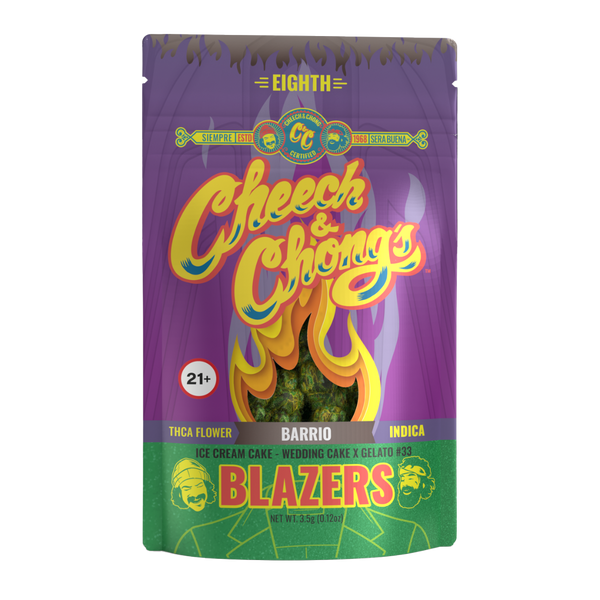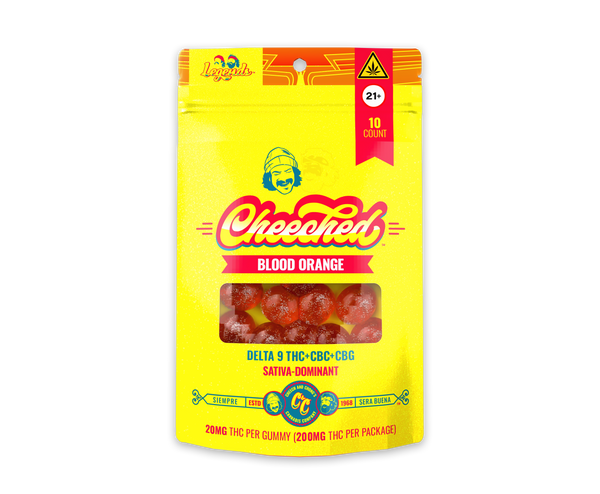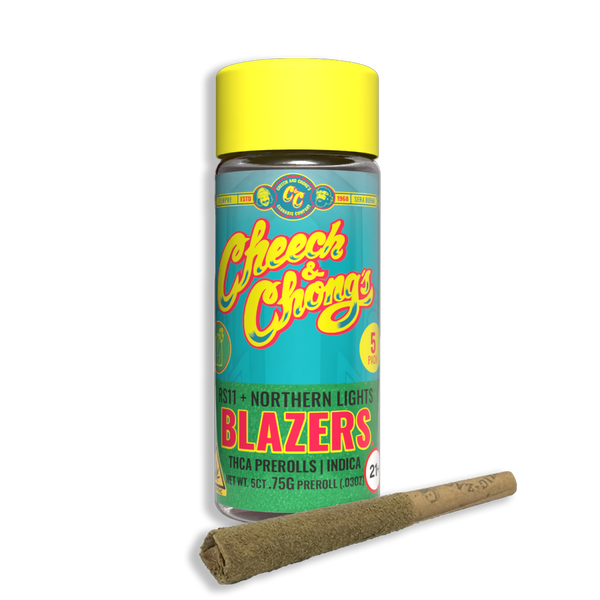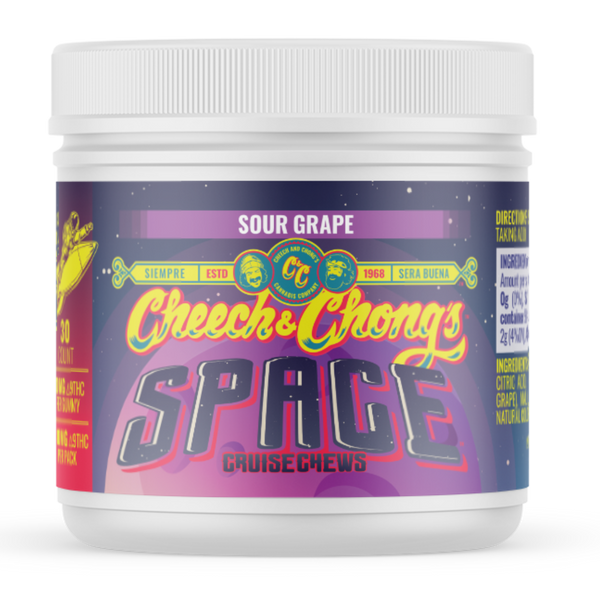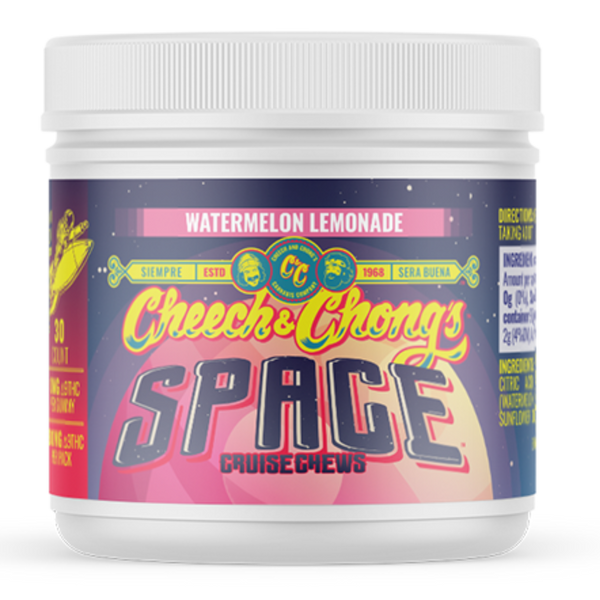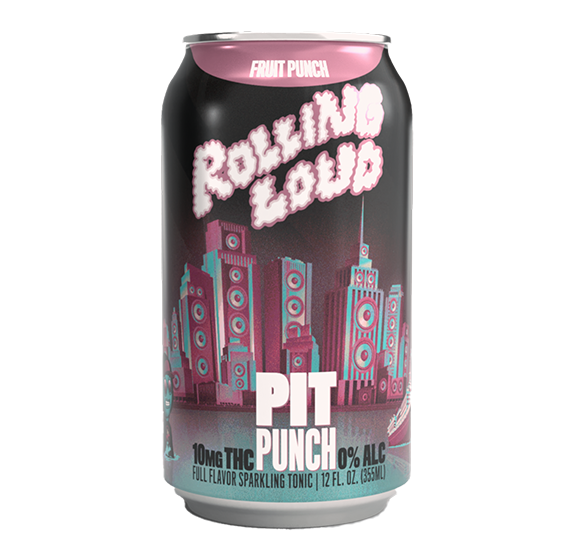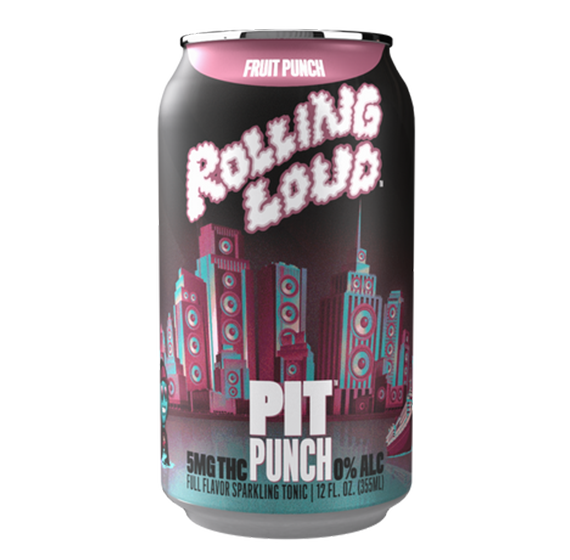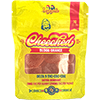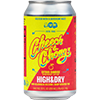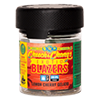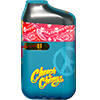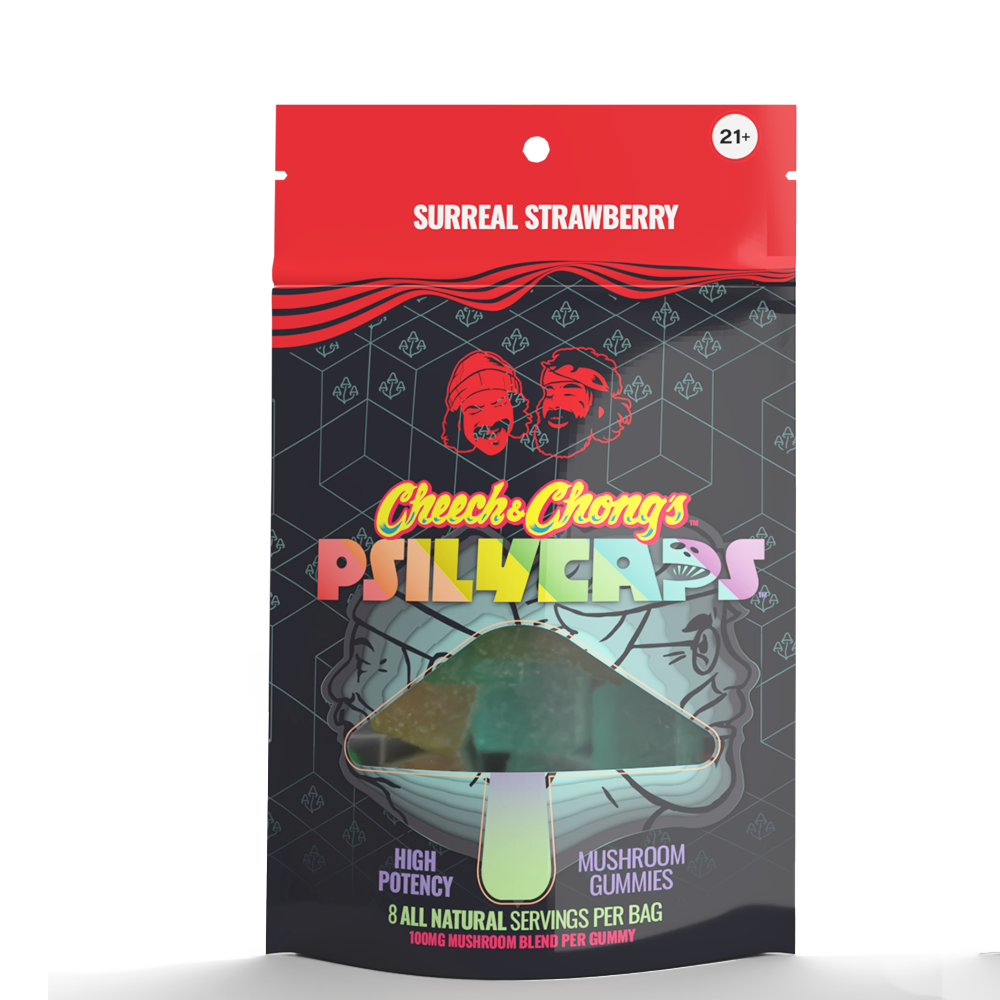How Long Does Delta-9 Stay in Your System? Detection Window by Test Type
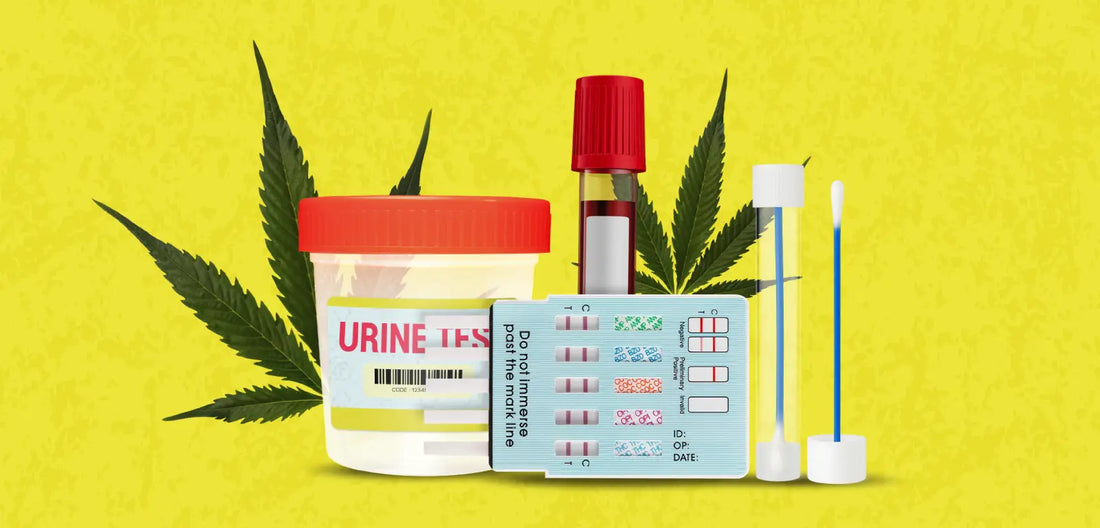
Let’s be real—if you’re reading this, there’s a good chance you’re trying to thread the needle between getting high and passing a drug test. No judgment, man. We’ve all been there. Maybe you’ve got a job interview coming up, or maybe your cousin invited you to a “surprise” family gathering that mysteriously involves a urine sample. Whatever the reason, you’re here for answers.
Delta-9-tetrahydrocannabinol (Delta-9 THC) is the main compound in cannabis that gets you high—but even after the buzz wears off, it can hang out in your system way longer than you'd expect. Depending on how much you use, how often you use it, and what type of drug test you're facing, it could be gone in a day… or still popping up months later.
And even though hemp-derived Delta-9 products are 100% federally legal (the Farm Bill clarifies that as long as something is derived from hemp with no more than 0.3% THC by dry weight, it’s A-OK) your body—and more importantly, your drug test—doesn’t care where it came from. It all shows up the same.
So whether you’re a regular user, a curious first-timer, or just trying to be a little smarter about your stash, we’ve got details you need to know about how long Delta-9 tends to stick around—and what usually affects how fast it leaves. (Though it’s always good to remember that everyone responds to THC differently… so there’s a chance this may not reflect your experience or effects on your body.)

Delta-9 Detection Windows by Drug Test Type
The high might wear off in a few hours, but your body keeps the receipts. Drug screenings don’t just look for Delta-9 THC—they’re often searching for its byproducts (called metabolites), which can stick around long after the fun’s over.
How long Delta-9 THC stays detectable can depend on the type of test you're taking. Saliva and blood tests usually catch recent use, while urine tests can pick up traces for days or weeks. And then there’s the hair test… which is basically the overachiever of the bunch, looking back up to 90 days or more.
These are just averages—individual factors like how often you use cannabis, your body’s metabolism, body fat percentage, and even how hydrated you are can all shift the timeline. Drug tests aren’t perfect science, but knowing the ranges can help you plan accordingly.
Saliva Tests
Detection times:
-
Occasional use: 24 to 48 hours
- Chronic use: Up to 72 hours
If you’re facing a saliva test, here’s the good news: it’s got the shortest detection window of the bunch. For most people, Delta-9 THC is only detectable in saliva for about 24 to 48 hours after use. Heavy or chronic users might stretch that to around 72 hours, but that’s usually the upper limit.
Saliva tests are popular because they’re fast, non-invasive, and tough to fake. They’re commonly used by employers and law enforcement (especially for roadside checks) to catch recent cannabis use, not something you smoked two weeks ago.
These tests work by detecting active THC—not just its metabolites—which is why they only catch it if you’ve used recently. And while some people swear by tricks like swishing hydrogen peroxide or chewing gum before the test, the truth is, your best shot at passing is simply taking a break for a couple of days, staying hydrated, and keeping up with basic oral hygiene.
Blood Tests
Detection times:
-
Occasional use: 2 to 24 hours
- Chronic use: Up to 7 days
Blood tests are a bit trickier—they can detect both active THC (the part that gets you high, which only stays in the blood for a few hours) and metabolites (the leftovers your body breaks it down into) like THC-COOH. That means even if you’re not currently feeling anything, a blood test could still pick up signs that you lit up days ago.
For occasional users, Delta-9 is usually only detectable in the blood for 2 to 24 hours after use. But if you’re a daily or heavy consumer, THC metabolites can linger in your bloodstream for up to 7 days—sometimes longer, depending on your body and how much you’ve been using.
Here’s what’s happening behind the scenes: when you smoke or vape, THC enters your bloodstream within minutes. But it doesn’t stay there for long—it quickly moves into fat cells, where it gets stored and slowly released back into your system over time. That’s why small amounts of THC can show up on a blood test even if you haven’t used in a while.
That said, blood tests aren’t great at measuring actual impairment. They’re expensive, they only catch a narrow window, and just because THC is still in your blood doesn’t mean you’re still feeling it.
Urine Tests
How long it takes to clear out depends on how much you’ve used and how often. Here's a rough breakdown:
-
One-time use: 1 to 3 days
-
Occasional use: 3 to 10 days
-
Moderate use: 1 to 2 weeks
- Chronic or heavy use: 3 to 6+ weeks
Urine tests are the go-to for most employers, probation officers, and anyone else looking to catch cannabis use without blowing the budget. They're cheap, easy to process, and can detect THC use long after the high is gone.
But here's the twist: these tests don’t look for THC itself. Instead, they detect a metabolite called 11-nor-9-carboxy-THC (a mouthful, we know), which your body produces after breaking Delta-9 down. This little compound likes to hang out in your fat cells, then make a slow exit through your pee.
In some cases—especially with daily users—THC metabolites have shown up over 100 days after last use. That’s not the norm, but it’s enough to make you think twice if you’ve got a test on the horizon.
Labs can also test your levels over time. If the amount of THC-COOH is dropping, that usually means you haven’t used recently. If it spikes or stays level, that might point to new use. Either way, the takeaway here is: urine tests don’t mess around.
Hair Tests
Detection times:
-
Up to 90 days or more depending on the length of hair tested
Hair tests are the longest-reaching of all the drug tests—and not in a good way. They can detect cannabis use for up to 90 days or more, depending on the length of your hair and how close the sample is taken to the scalp.
After you use Delta-9, THC metabolites circulate through your bloodstream and eventually get deposited in your hair follicles. Since hair grows at about half an inch per month, a standard 1.5-inch sample provides a snapshot of roughly three months of use.
That said, these tests aren’t flawless. They can occasionally turn up false positives, especially if you’ve been in close contact with cannabis users. THC-containing oils from skin or smoke can transfer to the hair and show up on a test—even if you didn’t actually partake.
Related Products
Hair tests also tend to be more expensive and less common in routine workplace screenings, but they do pop up in certain legal or corporate situations. If you're facing one, it's worth knowing they cast a wide net.
How Long Does Delta-9 Stay in Your System After One Use?
Had some Delta-9 just once and wondering how long it might stick around?
Good news: if it was a one-time thing, your body will likely process it faster than if you’re a regular user.
That said, how quickly it clears depends on a few personal factors—like your metabolism, body fat, hydration, and how potent that gummy, puff, or sip actually was.
Here’s a general idea of what to expect:
-
Urine tests: 1 to 3 uses can show up for 3 to 7 days
-
Blood tests: Often clear within 24 hours
-
Saliva tests: May detect use for 1 to 2 days
- Hair tests: Can still detect single use after 90 days

Key Factors That Influence Detection Duration
So, how long does Delta-9 really stick around? Like most questions about cannabis, the answer depends. A lot of factors can speed things up—or slow them way down. For example:
-
Frequency of use: The more often you use Delta-9, the more it builds up in your system. THC is stored in fat cells, so with regular use, your body takes longer to fully clear it out.
-
Amount consumed: Bigger doses = more THC in your system. And when you consistently consume larger amounts, THC metabolites tend to hang around longer, especially in urine.
-
Body fat percentage: THC is fat-soluble, meaning it binds to fat molecules in the body. People with higher body fat may hold onto THC metabolites longer than leaner folks.
- Metabolism: A faster metabolic rate means your body processes and eliminates substances more efficiently—including THC. About 20% of Delta-9 leaves through urine, while 65% exits through feces, so digestion and liver function both matter.
Everyone’s body handles cannabis a little differently, but these are the key variables that affect your personal detection window.
Does Your Consumption Method Impact Cannabis Detection?
Definitely. How you consume Delta-9 changes the way your body processes it—and how long it sticks around in your system. Some methods hit faster and clear quicker, while others take longer to kick in but leave a longer trace behind.
One study found that THC levels in blood and saliva were higher after smoking, while urine tests picked up more THC metabolites after eating edibles. Which makes sense, since smoking sends THC straight to your bloodstream through your lungs, while edibles have to take the scenic route through your digestive system and liver first.
When you eat Delta-9, your liver converts it into 11-hydroxy-THC, a powerful metabolite that takes longer to break down. That means edibles may produce a longer high—and a longer detection window—especially in urine and blood tests.
To sum it up:
-
Smoking or vaping = quicker onset, faster exit
- Edibles = slower onset, longer detection
How Long Do the Effects of Delta-9 THC Last?
Just because the high wears off doesn’t mean the THC is gone. Feeling sober and testing clean are two very different things. The effects of Delta-9 usually fade within hours, but your body might still be processing it for days—or even weeks.
How long you feel the effects depends on how you took it, your tolerance, and your body chemistry. Here’s a rough breakdown:
-
Smoking or vaping: 2 to 3 hours
-
Edibles: 4 to 12 hours
- Tinctures or oils: Similar to edibles, but can vary depending on the formula
Of course, every cannabinoid hits a little differently. Delta-9 tends to deliver the strongest and most noticeable high—but let’s compare some of the most common ones out there:
-
Delta-9 THC: The most potent and well-known form. Found naturally in cannabis, it produces a strong psychoactive effect.
-
Delta-8 THC: A synthetic alternative that’s milder and tends to fade faster.
- Delta-10 THC: Even less potent than Delta-8, with more of a subtle, buzzy effect.
Bottom line: Delta-9 is the heavy-hitter, but each cannabinoid has its own vibe—and timeline.
How to Get Delta-9 Out of Your System
If you rushed straight to this part of the article, here’s the honest truth: there’s no magic potion, smoothie, or internet hack that’ll instantly flush Delta-9 from your body.
If you’ve got an upcoming drug test, your best bet is the boring answer—stop using and give it time, man.
Yeah, you’ll hear all kinds of detox myths: cranberry juice, apple cider vinegar, gallons of water, wild detox kits from questionable websites... Most of them don’t work—or worse, they might raise red flags with the lab.
What actually helps?
- Staying hydrated
- Eating a healthy diet
- Getting regular exercise
- Supporting your liver and kidney function with rest and sleep
There are some detox products out there, but none are foolproof. If you're on a deadline, the safest move is to pause your Delta-9 use and let your body do what it’s built to do—flush things out naturally, over time.
Buy Delta-9 THC You Can Trust
Delta-9 hits fast, chills you out, and makes everything just a little funnier—but it’s not in any rush to leave your system.
Depending on how you use it, how often, and how your body processes it, Delta-9 can hang out in your system for days, weeks, or even months after your last dose.
Whether you're curious, cautious, or just trying to stay on top of your cannabis consumption habits, knowing the length of time Delta-9 sticks around helps you make smarter choices—and avoid any surprises on test day.
Looking for THC products that are federally compliant and made by people who actually know their weed? Check out Cheech and Chong’s full lineup. We’ve got Delta-9 THC gummies, THC drinks, THCa flower and pre-rolls—all third-party tested, Farm Bill legal, and ready when you are.


